
Relieving the Pressure: Treating Trauma-Generated Obsession, Compulsive, Self-Destructive Behavior with Acupuncture
Obsession, addiction, obsessive-compulsive disorders and paranoia are often the result of trauma. Classical Chinese medicine maps the way trauma, clinically seen as “blood stasis” results in psychosomatic or psychological PTSD symptoms.
The ancient Chinese medical textbook Ling Shu (Spiritual Pivot) says that when trauma afflicts the acupuncture systems of the Kidneys and Spleen it can result in obsession, habituation, obsessive-compulsive disorders and paranoia.
Trauma is defined as “a deeply distressing or disturbing experience” or as “a physical injury.” Chinese medicine acknowledges that emotional events can have similar effects on the body as physical injuries. When a person is unable to heal or resolve a trauma or distressing experience, they will often develop bruising or discoloration on their skin in the form of spider veins or varicosity. They can also develop swellings such as cysts and lipomas. A physical injury will cause bruising and pain; an emotional trauma can do the same, often with accompanying physiological or behavioral symptoms.
The acupuncture strategy for treating such symptoms is to invigorate the blood to break through blood stasis.
Blood is more than just a physical substance. In Chinese medicine, blood is the mediumship that carries the Shen (mind-spirit-animation) throughout the body. Stasis of blood is therefore stasis of the mind and spirit. It can also become depression of willpower and animation, causing a person to feel stuck and withdrawn.
Stagnant blood can become toxic, causing various immune problem such as Cancer, autoimmunity and degeneration. Stuck blood can also create a toxic mental and emotional life. The experiences of life, which should be fed with fresh blood to create excitement and enthusiasm can be tainted by the traumas and disappointments of the past, all due to stagnant blood.
Blood stasis can create stabbing, unbearable physical pain. It can also create unbearable mental and emotional suffering, to the point that a person will consider self harm or suicide to find relief.
The ability to stop negative thoughts and self-destructive behaviors is beyond the reach of the willpower when trauma has stagnated the blood. The heat that has been generated within the blood needs to be released. Needling a special category of acupuncture points called “Luo” points often causes a drop of blood to be released. This eases the pressure building within the vessels which will stop the obsessive thinking, need to “act out” and engage in compulsive behavior.
After pressure from stagnation has been eased, focus can be placed on regulating the blood to build fresh blood. The Qi-vitality of the digestive system (Spleen-Stomach) and the endocrine system (Kidney-Bladder) must then be strengthened and restored.
Working with the Spleen strengthens the “Yi,” which is the term for the ability to be mindful and reflective. It is the root of productive thinking, which digests and transforms thoughts, preventing them from becoming obsessive. Working with the Kidneys strengthens the “Zhi,” the willpower, which will root a person in their own state of well-being and self-preservation, preventing them from engaging in non-productive, repetitive and self-destructive behavior.
The physiology organ systems that regulate blood are the Spleen-Stomach which create the blood, the Heart and Pericardium which circulate the blood, and the Liver that stores the blood.
The energetic explanation for how trauma effects the body, and how PTSD develops is described in the Ling Shu. The Heart’s circulation of blood is aided by the Lungs and their control over respiration. The breath pulses the blood through the vessels. If an exterior challenge, in the form of something environmental, pestilent or germ overwhelms the body’s defensive energy (Wei Qi), it can interrupt Lung function and impact the Heart and blood.
When an emotion overwhelms the mind, in the form of a distressing experience, it will impact the Heart directly. It can lead to a strong experience of betrayal or “heart shock” which can cause a person to become “mute,” unable to talk about or effectively process the experience and its subsequent emotional response. This can impact the inner and outer aspects of the Heart and the entire circulatory system, which is under the control of the Pericardium. When the trauma impacts the Pericardium, it can lead to an inability to control one’s emotions and difficulty interacting with others. Damage to both the Heart and Pericardium cause a person to withdraw and retreat, unable to deal with the trauma, either through speaking about it, or creating close contact with others which may reopen the wound or leave them vulnerable. The person creates a strong armor to shield them from re-experiencing the trauma.
Trauma affecting the Heart can also impact the Small Intestine which will cause obsessiveness in the form of neediness, insecurity, needing constant validation and feedback from others. The person loses their ability to trust their instincts. They constantly second-guess themselves, distrusting the intentions of others, and doubting their meaning.
Trauma and resulting PTSD goes through a progression. It can cause a person to develop fetishes, become hyper-sensitive, and even develop manic-depressive tendencies where they are unable to discern their own limits physically and energetically. They can engage in extreme behaviors, essentially “running themselves into the ground” due to their lack of limits. This can burn a person out and cause deep depression and fatigue.
When the trauma goes deep enough, it will reach the level of the Spleen and Kidneys which can cause chronic obsessiveness and compulsiveness. This indicates the Yi rooted in the digestive function and the Zhi-Willpower rooted in the endocrine have become damaged. At this stage it is not enough to merely regulate blood. The “Yin” hormonal aspect of the body must also be regulated and rebuilt.
In my acupuncture clinic I’ve been working with a young man for several months who’d experienced major ongoing familial trauma during his childhood. He came to me initially for chronic pain in his feet, which was unusual due to his relatively young age.
Problems with the feet are often associated with the Kidneys, especially the acupuncture channeled Yin Qiao Mai, which is seen as one of the “Stance” vessels impacting posture and physical structure. It is also seen as a major depository for Luo Vessel blood stagnation trauma.
As I got to know this young man, I came to see that he exhibited manic-depressive tendencies, paranoid thoughts, and could even act out in violent spurts of anger which frightened him and repeatedly destroyed relationships in his work and personal life. He’d describe feeling betrayed and attacked by many people. He exhibited a victim mentality and was an “activist” by vocation. The internal low self-esteem and external activist personality combination is a classic indication that both the Yin and Yang Qiao Vessels are afflicted with long-term trauma and unresolved issues. This means a person’s relationships (ability to “Stand up” to) the world and oneself have become fraught and problematic.
I began treating him with the Qiao Vessels to strengthen the Kidneys and ease the pain in his feet. This also built back his endocrine system to calm and give him more confidence and strength to talk about his past. It also calmed his hypersensitivity towards the external world.
After some time, we began focusing on the Luo Vessels and particular blood stagnations within his system: the traumas themselves and their expressive symptoms. I began by treating the Kidney, Stomach, Pericardium and Heart Luo Vessels. The Stomach used was to address his manic episodes which tended to become violent and chaotic, the Pericardium for his difficulty controlling his emotions and his inability to maintain healthy relationships, the Kidney to address his paranoia, and the Heart to go to the root of his betrayal experience.
The acupuncture point PC-6 “Inner Gate” was especially helpful to clear the anxiety and self-destructive acting out behavior that helped him maintain comfortable distance from others. This point helped soften the armor around his heart. I added the point TH-5 “Outer Gate” alternatively to break through his tendency to become indifferent to the feelings of others. He had a tendency to focus solely on his own suffering and fear, not able to sense the feelings of others in the situations he found himself in. He’d describe situations of conflict where he felt himself the sole victim, even though he’d exhibited the violent or destructive behavior. The combination of these two “gate” points helped him open his heart and see his own part in perpetuating conflict in his life.
The point KI-4 helped to calm his paranoia that those around him were trying to destroy him. Yet again, he needed support in being able to see they ways in which he was creating much of the drama and conflict in his life. It took awhile but he started to recognize much of the behavior from others coming at him was a response to his own chaotic mood swings and tendency to lash out when he felt afraid.
ST-40 was used each treatment to clear the “fire” in his head that would cause him to go into manic acting out binges that often involved sex, drugs and alcohol. He’d describe being able to maintain calm for only so long before the pressure and anxiety of his life would hit a peak and he’d go into an acting out episode, which he’d have to “clean up” afterwards. He’d get into physical altercations with others that sometimes involved the police, and often ended the relationship. Combining this point with BL-58 helped him begin to get a greater sense of his own limitations: to know how far was too far. He’d often fall into patterns where he’d drink too much, not knowing when to stop, which would generate more and more “fire” to cause behavior that was uncontrollable. Strengthening BL-58 helped him gain the ability to stop and not go too far in his excessive behavior.
HT-5 and LU-7 were points that took time to adjust to. Initially they were too sensitive, causing him to become depressed and anxious. They were too close to having to face the “heartache” of his original wounding, which occurred in his chaotic family life as a child. Finally when he was able to accept these points was he able to cry and reach a level of catharsis and forgiveness for himself, which he’d earned though his painstaking work on himself.
Such tender traumas require a great deal of courage to face. It took months before we were able to approach HT-5 and LU-7: the heart pain held deep in his chest: the root of his acting out behavior. There are many times when wanted to quit and took breaks to go on binges. But somehow he always returned with determination to heal and transcend his trauma. He’s still working on himself, and I am still working with him.


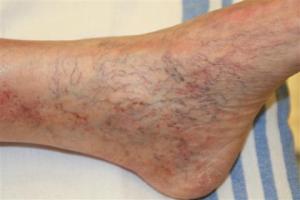
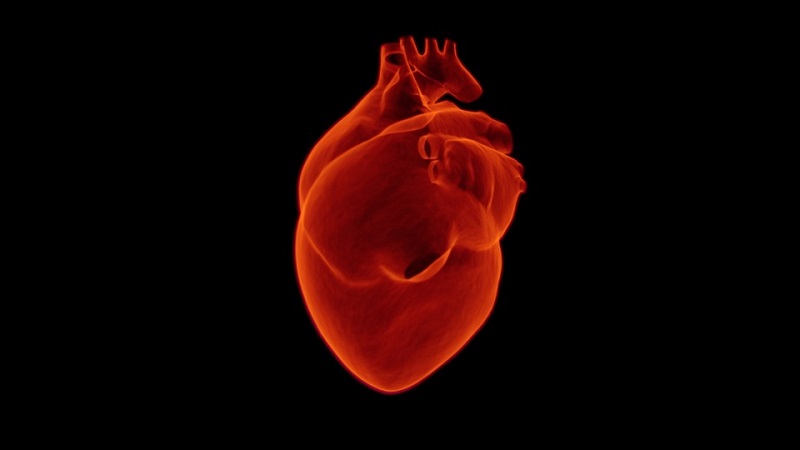
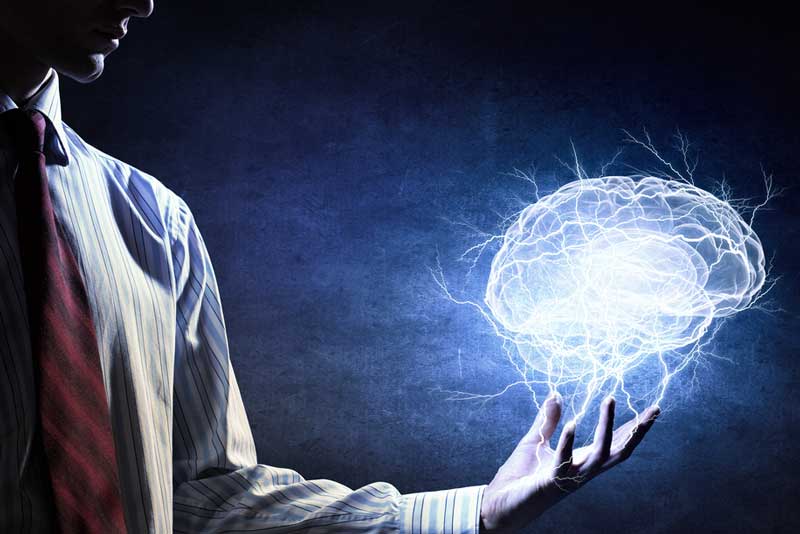
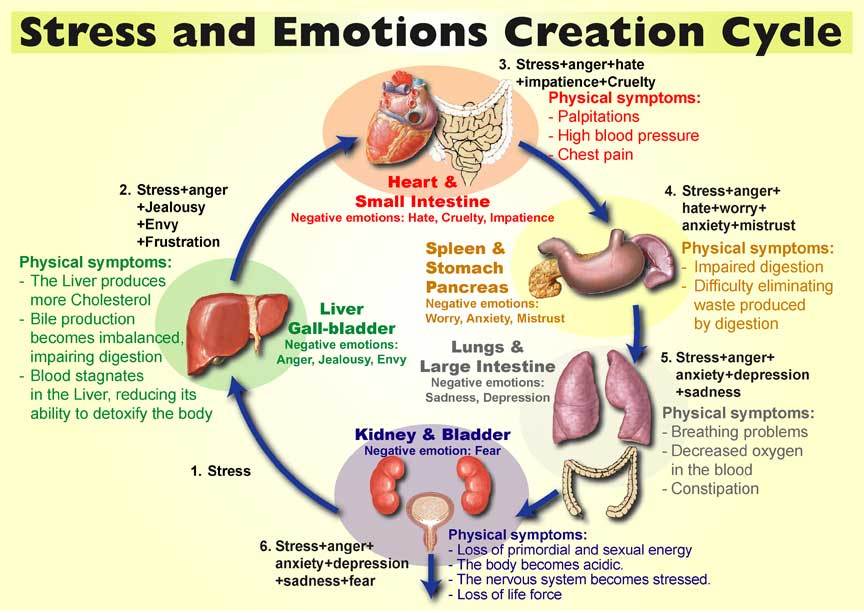

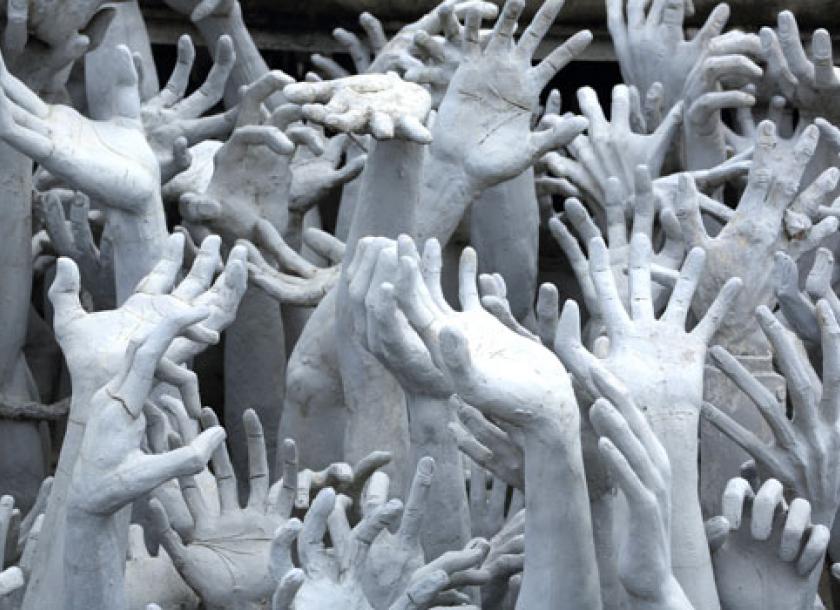
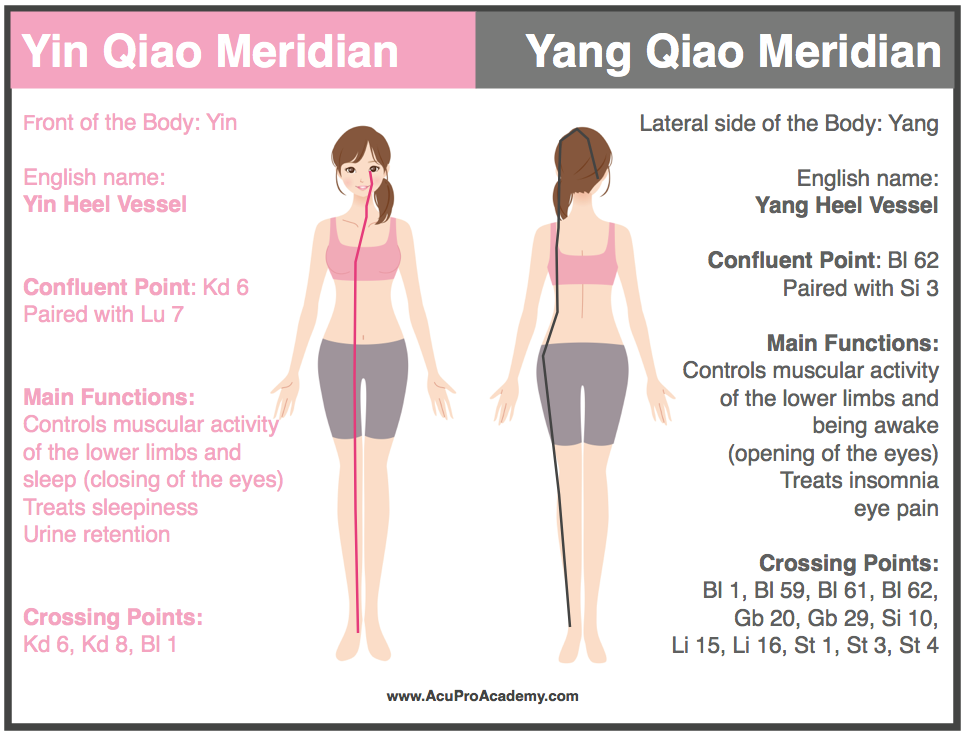
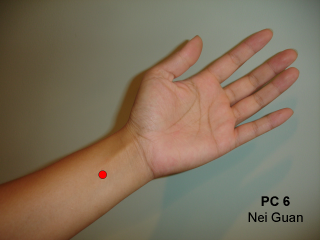

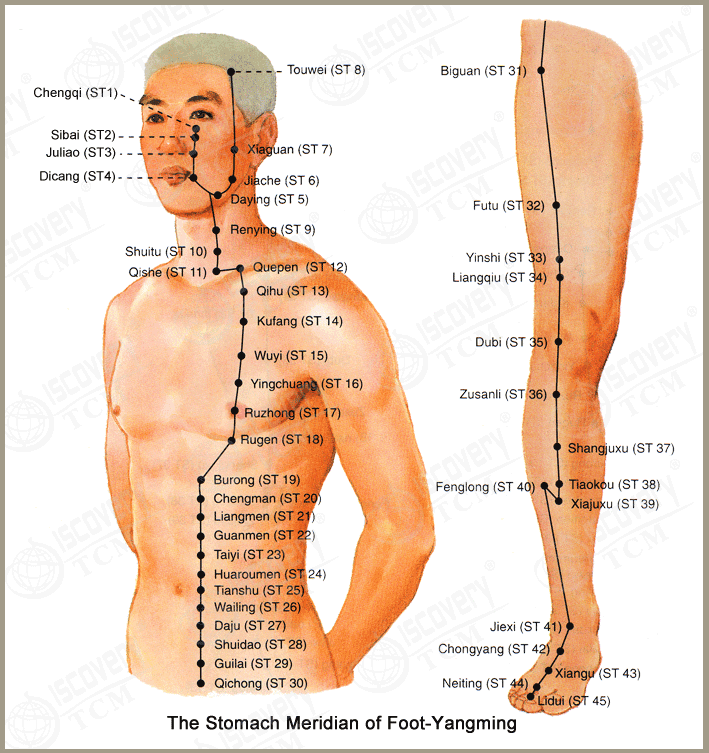
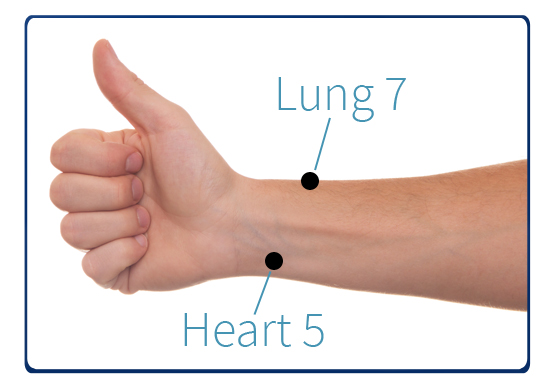



No Comments